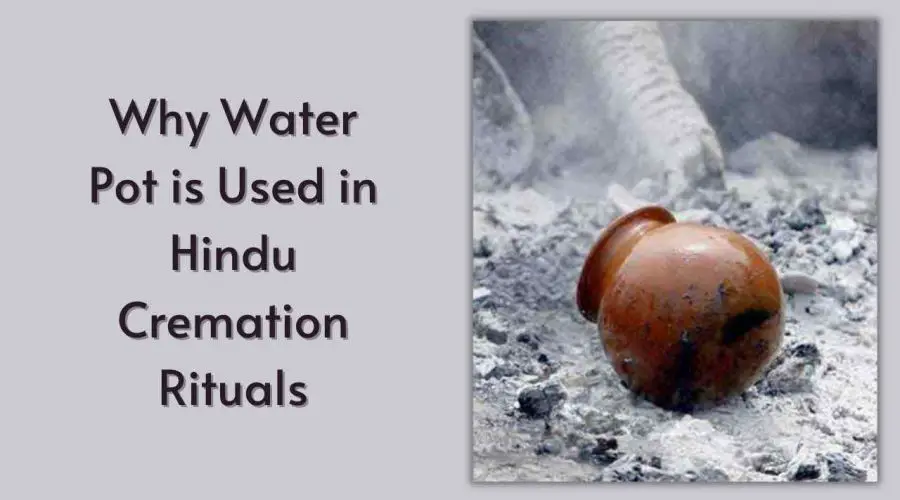Why Water Pot is Used in Hindu Cremation Rituals? Know the real reason
As per Hindu rituals, carrying a water pot during the cremation ceremony is a must for many Hindu communities and it has a very deep meaning, which is connected to our idea of the human body and soul.
The person who is in charge of lighting the pyre walks around the dead person’s pyre with a water pot on his shoulders. The water pot gets a hole so that the water can flow out and fall around the funeral pyre. The water pot is finally dropped almost backwards and breaks.
This is done to tell the dead person’s soul that it’s time for it to leave the body. The soul needs to stop being linked to the body.
All Hindu scriptures talk about a pot with water in it, and this has many different meanings.
- Like the pot, the body will one day break and be destroyed. The pot must finally sink into the ground. The person will finally have to get to his goal, which is the Supreme Truth.
- The water falling out of the pot as it goes around the funeral pyre is a symbol of how time goes by.
- The soul knows for sure that the body is no longer its home when the last pot is broken and water flows out.
- The pot also stands for all the things the person had on earth, such as their relationships and money.
- The soul is being asked to give up everything and start the journey to merge with the Supreme Truth when the pot is broken with force.
Frequently Asked Questions
1. Why is Mukhagni given?
The cremation ritual, or “mukhagni,” is conducted by a Hindu priest and senior family members. Modern Hindu funerals, however, permit women to participate even though traditionally, only men are allowed to attend the makhani. Hindu funerals end with the scattering of the deceased’s ashes over a holy body of water or another significant location the next day.
2. What happens in traditional Hindu cremation rituals?
Traditional cremation typically occurs within 24 hours of a person’s dying. Hindu cremation rites call for families to spread ashes in a holy body of water within a day or two of the death to symbolise the soul’s complete separation from the body.
3. Why is cremation not done after sunset?
Cremation that occurs at night, or after sunset, is prohibited by Hindu texts, according to the Garuda Purana. For this reason, if someone passes away in the middle of the night, wait until dawn before burying him. The cremation then takes place the following morning at sunrise.
4. Can daughter perform last rites?
However, according to Hindu custom, daughters are not “allowed” to perform or, for that matter, take part in the final rites of their parents. If a female fires the funeral pyre, it is thought that the deceased won’t achieve “moksha” and will remain trapped in a cycle of rebirths.

